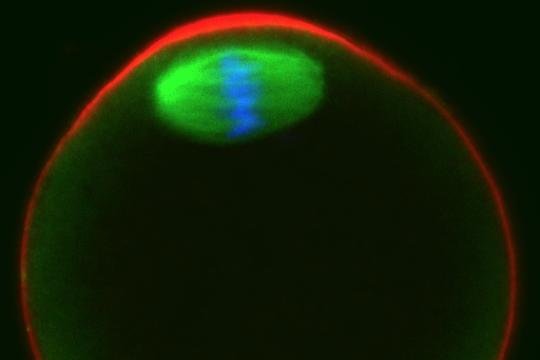Securin is important for both egg divisions but in old eggs, it appears that there is insufficient securin remaining to ensure meiosis II takes place normally. Photo courtesy Monash Biomedicine Discovery Institute
May 18 (UPI) -- Australian researchers may have found the key to unlocking the mystery of infertility, miscarriage and birth defects in older women over the age of 37.
Female fertility declines rapidly after the age of 37, with women 42 and older having just a five percent chance of having a baby without fertility treatment.
A study by the Monash Biomedicine Discovery Institute, or BDI, and the University College London have uncovered a fault in how the egg controls the levels of protein called securin leading to increased risk of miscarriage and chromosomal abnormalities like Down's syndrome in the fetus.
Most chromosomal abnormalities in eggs cause embryos to fail to implant in the womb or miscarry soon after implantation.
In the final stages of egg development prior to ovulation, two types of cell division take place, melosis I and melosis II. Securin is vital for both divisions, but in older eggs there is insufficient securin remaining to allow melosis II to happen normally.
Researchers found that in older women the chromosomes in their eggs start to fall apart because there is not enough securin to control the process.
Regulating processes to control securin levels in the two division of the egg or controlling the protein that securin regulates known as separase are ways to improve fertility in older women, especially since more women are waiting to have their first baby.
"Now that we have an idea of at least one of the causes of the increased incidence of chromosomal abnormalities and miscarriages in older women, we can attempt to find ways to prevent this happening," Professor John Carroll of Monash BDI, said in a press release.
The study was published in Nature Communications.















